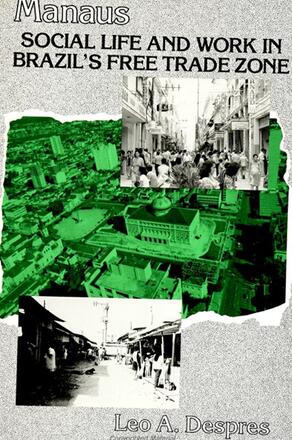
Manaus
Social Life and Work in Brazil's Free Trade Zone
Alternative formats available from:
Description
Manaus, an urban-industrial center in the Amazon, serves in this book as a microcosmic case of dependent capitalist development in Latin America. With the creation of a Free Trade Zone and a strong program of fiscal incentives in 1967, the Brazilian government initiated a large-scale project designed to establish an industrial pole in Manaus. This book is an anthropological study of the impact of this type of development on the economic, social, and cultural life of working class families.
This study underscores the work relationships between different economic sectors, the economy of households, the organization of domestic groups and, ultimately, the social engagement of working class families in the life of their neighborhoods, the city, and the larger Brazilian society. Despres examines the theoretical value of modernization, dependency, and modes of production approaches for understanding the social formation of working class populations. In discussing capitalist development in Brazil, the author grapples with the problems of urbanization, industrialization, and economic development in Latin America generally.
Leo A. Despres is Professor of Anthropology and a Fellow at the Kellogg Institute for International Studies at the University of Notre Dame. He is the author of Cultural Pluralism and Nationalist Politics in British Guiana and editor of and contributor to Ethnicity and Resource Competition in Plural Societies.
Reviews
"It is very well-written and makes a great contribution to the literature. The bibliography is excellent. There is nothing comparable in Portuguese or English, or on any other tropical forest area in the world that is industrializing. " — Paul Aspelin, Cleveland State University